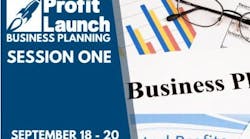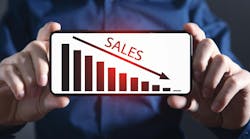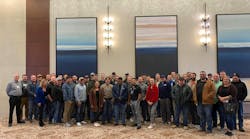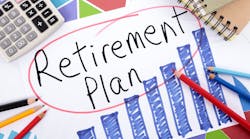Salespeople fill a necessary and vital role in society. However, not many people are in love with salespeople, and due to the “salesman stigma,” many salespeople are even kind of
embarrassed to tell people they’re in sales.
When I ask, “What words do people use to describe salespeople?” to participants of my live seminars, they usually shout out the following answers in this order:
• Slick • Slimy • Shyster • Liar • Big mouth • Jerk • Etc.
When people refer to someone as a “typical salesman,” they usually mean it’s the one who won’t shut up, and you can’t believe a word he says.
Why do salespeople have such a bad reputation? Well, there’s always a reason for the stereotype, so the short answer is that they deserve it . . . sort of.
What if I told you that not every salesman is a “real” salesman; they’re “wanna be salesmen?”
Have you ever been misled by a salesman? I suggest you go back and confront him, but you better hurry, because he’s already moved on. I say that because 95% of the people who start a career in sales fail, quit, and go into some other profession within a short period of time. I believe that the people who are giving the sales profession a bad reputation are the wannabe salespeople, who stay in sales just long enough to bring the reputation of salespeople down a little more, and then take off, leaving us true career salesman to clean up their messes.
Why is the failure rate in sales so high? Part of it is the perception that sales is not a true “career”, per se, and that anyone can do it with little or no training; all that’s required to make it in sales is that you:
1. Have the “gift of gab”.
2. Know a lot of jokes.
3. Be a bit of a “BS-er”.
Salesmanship is not the gift of gab. You don’t talk people into buying, you listen them into buying.
Salesmanship is not telling jokes. You can’t expect to be taken seriously when you’re joking around. Conduct business in a business-like manner.
It’s truly the liars and the BS-ers who give sales a bad reputation, so that’s out, too.
Where Do You Stand?
What’s your attitude toward a selling situation? Do you see the closing process as a contest in which you are imposing your will on the prospect? Do you, perhaps subconsciously, view sales calls as a competition between you and the customer? When you run calls, are you trying to figure out what they want to buy, or how to sell them what you want to sell?
Stop ‘Selling!’
You don’t really sell . . . people buy.
You can’t make people buy, you can’t talk them into buying, and you can’t pressure them into buying.
It’s important to realize that people buy of their own free will. When they buy from you, it’s because they came to the realization that they wanted what you were offering, and they wanted to get it from you.
Defining Excellence in Salesmanship
Many people define salesmanship as, “the art of persuasion.” That sounds like you’re talking people into things, doesn’t it? I don’t like it.
Others see salesmanship as the ability to convince people to buy things they may or may not need, and may or may not be able to afford, but we make a commission on it. That is not the way to sell, that is not the way to work, and that is not the way to think about salesmanship.
My official definition of excellence in salesmanship is the ability to determine what the customer wants to buy, combined with the ability to convey that you’ve got it, using the least number of words and in the shortest amount of time possible.
Do your part! It’s up to you whether you’re one of the good salespeople, who contributes positively to the profession, or one of the bad salespeople, who contributes to the salesman stigma and makes people hate salespeople all the more.
Sales skills are also communication skills and the better your communication skills, the better every aspect of your life gets. When you get along better with people, many more people say yes than say no, you make more money in less time, and you start feeling good about yourself and your career choice. You’re not just in the HVAC business, we’re in the people business, and good sales/communication skills just make the job easier.








